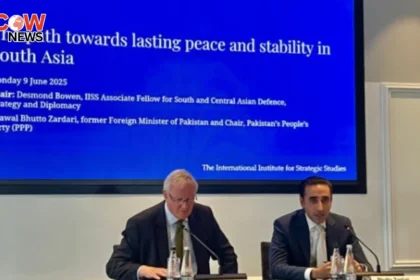Israeli Prime Minister Benjamin Netanyahu ordered negotiators on Saturday to return to Qatar to discuss the fragile ceasefire in the war with Hamas, after the fifth hostage-prisoner swap agreed under the truce was completed.
He repeated his vow to crush Hamas and free all remaining hostages, denouncing the militant group as “monsters” after the handover of three captives in Gaza who appeared emaciated and were forced to speak on a stage.
The hospital treating the three Israeli hostages released from Gaza on Saturday said Or Levy and Eli Sharabi were in a “poor medical condition,” while Ohad Ben Ami was in a “severe nutritional state”.
Of the 183 inmates released by Israel in return, the Palestinian Prisoners’ Club advocacy group said seven required hospitalisation and decried “brutality” and mistreatment in jail.
While 41 of those released returned to the West Bank city of Ramallah, four were released in Israeli-annexed East Jerusalem, 131 were sent to Gaza and seven were deported to Egypt.
The fifth exchange since the truce took effect last month came as negotiations were set to begin on the next phase of the ceasefire, which is intended to pave the way for a permanent end to the war.
But senior Hamas official Bassem Naim on Saturday said Israel’s “procrastination and lack of commitment in implementing the first phase… exposes this agreement to danger and thus it may stop or collapse”.
He also described, in an interview with AFP, the condition of the hostages as “acceptable under the difficult circumstances that the Gaza Strip was living”.
Saturday’s swap followed remarks by President Donald Trump suggesting the United States should take control of the Gaza Strip and clear out its inhabitants, sparking global outrage.
The three Israeli hostages, who were all seized by militants during Hamas’s October 7, 2023 attack that sparked the war, “crossed the border into Israeli territory” on Saturday, the Israeli military said.
With their return, 73 out of 251 hostages taken during the attack now remain in Gaza, including 34 the Israeli military says are dead.
Jubilant crowds in Israel’s commercial hub Tel Aviv cheered as they watched live footage of the hostages, flanked by masked gunmen, brought on stage in Deir el-Balah before being handed over to the International Committee of the Red Cross.
But the joy at their release was quickly overtaken by concern for their condition, with all three appearing thin and pale.
Sharabi’s cousin Yochi Sardinayof said “he doesn’t look well”.
“I’m sure he will now receive the right treatment and he will get stronger… He has an amazing family, and we will all be there for him.”
The choreographed handover included forced statements from the three on stage, in which they stated support for finalising the next phases of the Israel-Hamas truce.
The “disturbing images” from Gaza show that “we must get them all out”, said the Hostages and Missing Families Forum campaign group.
The ICRC meanwhile called on “all parties, including the mediators, to take responsibility to ensure that future releases are dignified and private”.
Sharabi, 52, and Ben Ami, a 56-year-old dual German citizen, were both abducted from their homes in kibbutz Beeri when militants stormed the small community near the Gaza border.
Sharabi lost his wife and two daughters in the attack.
Levy was abducted from the Nova music festival, where gunmen murdered his wife.
In the occupied West Bank city of Ramallah, relatives and supporters gathered to welcome inmates released by Israel, embracing them and cheering as they stepped off the bus that brought them from nearby Ofer prison.
But Fakhri Barghouti, 71, whose son was among the prisoners, told AFP that Israeli soldiers had stormed his home and beaten him, warning him not to celebrate his son’s release.





